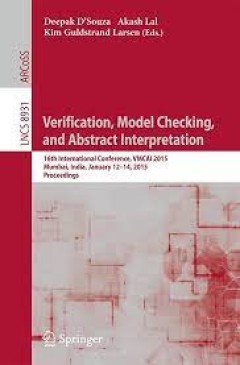Filter by

Wavelets in Neuroscience
This book examines theoretical and applied aspects of wavelet analysis in neurophysics, describing in detail different practical applications of the wavelet theory in the areas of neurodynamics and neurophysiology and providing a review of fundamental work that has been carried out in these fields over the last decade. Chapters 1 and 2 introduce and review the relevant foundations of neuroph…
- Edition
- -
- ISBN/ISSN
- 978-3-662-43850-3
- Collation
- XVI, 318
- Series Title
- -
- Call Number
- -

Selves and Subjectivities Reflections on Canadian Arts and Culture
Long a topic of intricate political and social debate, Canadian identity has come to be understood as fragmented, amorphous, and unstable, a multifaceted and contested space only tenuously linked to traditional concepts of the nation. As Canadians, we are endlessly defining ourselves, seeking to locate our sense of self in relation to some Other. By examining how writers and performers have con…
- Edition
- -
- ISBN/ISSN
- 9781926836492.01
- Collation
- -
- Series Title
- -
- Call Number
- 275 pages

Northern Love An Exploration of Canadian Masculinity
In Northern Love, Paul Nonnekes proposes a conception of love suggestive of a distinctive model of Canadian masclinity. He pursues debates in psychoanalysis and cultural theory in relation to two representative male characters in novels by Rudy Wiebe (A Discovery of Strangers) and Robert Kroetsch (The Man from the Creek).
- Edition
- -
- ISBN/ISSN
- 9781897425220.01
- Collation
- -
- Series Title
- -
- Call Number
- 145 pages

Voltage Control and Protection in Electrical Power Systems From System Compo…
Based on the author’s twenty years of experience, this book shows the practicality of modern, conceptually new, wide area voltage control in transmission and distribution smart grids, in detail. Evidence is given of the great advantages of this approach, as well as what can be gained by new control functionalities which modern technologies now available can provide. The distinction between s…
- Edition
- -
- ISBN/ISSN
- 978-1-4471-6636-8
- Collation
- XXVIII, 557
- Series Title
- -
- Call Number
- -

Visual Cryptography for Image Processing and Security Theory, Methods, and A…
This book addresses the fundamental concepts in the theory and practice of visual cryptography. The design, construction, analysis, and application of visual cryptography schemes (VCSs) are discussed in detail. Original, cutting-edge research is presented on probabilistic, size invariant, threshold, concolorous, and cheating immune VCS. This updated second edition has also been expanded with ne…
- Edition
- -
- ISBN/ISSN
- 978-3-319-23473-1
- Collation
- XVI, 167
- Series Title
- -
- Call Number
- -

Virtual and Remote Control Tower Research, Design, Development and Validation
The interdisciplinary research and development work carried out in the last ten years which is presented in this book aimed at replacing the conventional airport control tower by a new “remote tower operation” work environment (RTO) which should enhance work efficiency and safety and reduce costs. This revolutionary human–system interface allows for remote aerodrome traffic control withou…
- Edition
- -
- ISBN/ISSN
- 978-3-319-28719-5
- Collation
- XX, 337
- Series Title
- -
- Call Number
- -

Vertical Cooperative Advertising in Supply Chain Management A Game-Theoretic…
In this book methods from Operations Research and Game Theory are used to determine companies’ profit-maximizing strategies related to pricing and (cooperative) advertising. It considers different supply chain structures as well as various distributions of power, making it possible to analyze both inter-echelon and intra-echelon dependencies between the companies’ decisions. Additionally, a…
- Edition
- -
- ISBN/ISSN
- 978-3-319-11626-6
- Collation
- XXII, 149
- Series Title
- -
- Call Number
- -

Verification, Model Checking, and Abstract Interpretation 16th International…
This book constitutes the refereed proceedings of the 16th International Conference on Verification, Model Checking, and Abstract Interpretation, VMCAI 2015, held in Mumbai, India, in January 2015. The 24 revised full papers presented were carefully reviewed and selected from 53 submissions. The papers cover a wide range of topics including program verification, model checking, abstract interpr…
- Edition
- -
- ISBN/ISSN
- 978-3-662-46081-8
- Collation
- XVIII, 468
- Series Title
- -
- Call Number
- -

Vector Optimization and Monotone Operators via Convex Duality Recent Advances
This book investigates several duality approaches for vector optimization problems, while also comparing them. Special attention is paid to duality for linear vector optimization problems, for which a vector dual that avoids the shortcomings of the classical ones is proposed. Moreover, the book addresses different efficiency concepts for vector optimization problems. Among the problems that app…
- Edition
- -
- ISBN/ISSN
- 978-3-319-08900-3
- Collation
- XVII, 269
- Series Title
- -
- Call Number
- -

Vector Generalized Linear and Additive Models With an Implementation in R
This book presents a greatly enlarged statistical framework compared to generalized linear models (GLMs) with which to approach regression modelling. Comprising of about half-a-dozen major classes of statistical models, and fortified with necessary infrastructure to make the models more fully operable, the framework allows analyses based on many semi-traditional applied statistics models to be …
- Edition
- -
- ISBN/ISSN
- 978-1-4939-2818-7
- Collation
- XXIV, 589
- Series Title
- -
- Call Number
- -
 Computer Science, Information & General Works
Computer Science, Information & General Works  Philosophy & Psychology
Philosophy & Psychology  Religion
Religion  Social Sciences
Social Sciences  Language
Language  Pure Science
Pure Science  Applied Sciences
Applied Sciences  Art & Recreation
Art & Recreation  Literature
Literature  History & Geography
History & Geography